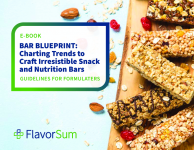Danisco hails scientific backing for sweetener xylitol
the sweetener xylitol is effective in fighting tooth decay.
Both the Journal of the American Dental Association and the Journal of Dental Research have recently highlighted the dental benefits of the ingredient, a naturally occurring sweetener that has potential in a number of food applications.
The studies showed that on an individual basis, as well as on a community level, xylitol can significantly reduce the incidence of tooth decay, can reduce plaque and can inhibit the growth of caries causing bacteria.
"The elegance of the application of xylitol is its simplicity and safety for use by individuals and in public health programmes," said Dr Peter Milgrom, lead author of one of the new studies in the US and professor and director of the NIH sponsored Northwest/Alaska Center to Reduce Oral Health Disparities.
"Given the history of previous research worldwide and our own new findings in the US, xylitol is underused as a valuable dental public health tool."
The ingredient has also received academic backing within Europe. Last year the Scottish Intercollegiate Guidelines Network, which provides heathcare guidelines, included xylitol in recommendations encouraging consumers to look after their teeth.
The network said that consumers should use non-sugar sweeteners, in particular xylitol, in food and drink, and should be encouraged to use sugar-free chewing gum, "particularly containing xylitol, when this is acceptable."
Xylitol belongs to the polyol family of sugar alcohols and is a naturally-occurring 5-carbon polyol sweetener found in a host of fruits and vegetables. As sweet as sucrose, xylitol is the sweetest of all the polyols, but is said to have no after-taste and is safe for diabetics.
In Europe a handful of polyols - sorbitol, xylitol, lactitol, mannitol, maltitiol and isomalt - have been approved by the Scientific Committee for Food (SCF) for use in foodstuffs and fall under the 'additives' label.
The billion euro market for polyols is growing at just under three per cent, compared to over 8 per cent for high intensity sweeteners. But dental benefits could open up new sales growth areas for this polyol sugar replacer.
Market analysts Business Communications Company pitched global market demand for polyols in 2001 at about 1,397,000 metric tons in sales volumes. This volume is expected to exhibit an average annual growth rate of 2.7 per cent for the next five years to reach 1,597,000 metric tons.
In addition to Danisco, leading players in polyol, notably sorbitol, supplies include Archer Daniels Midland, Swiss firm Lonza, Roquette and SPI Polyols.











